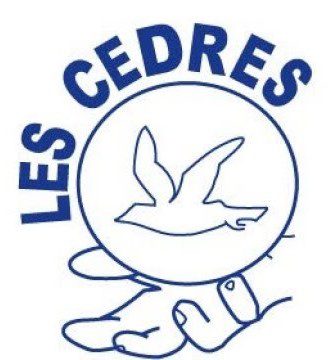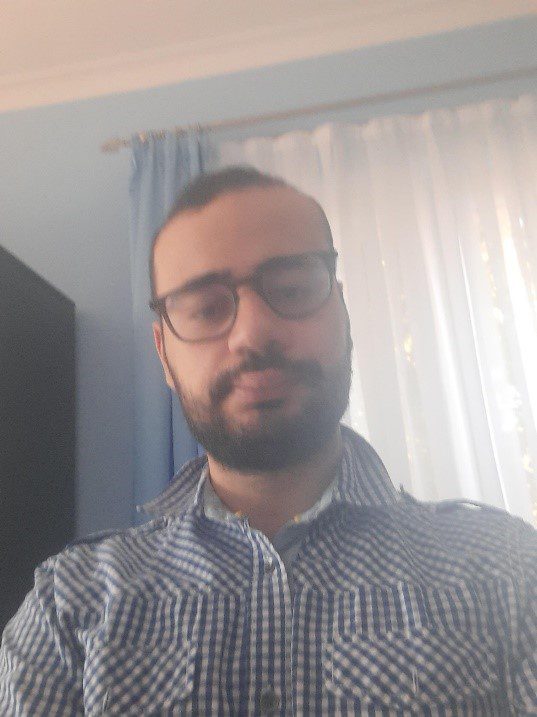At the university of Mons, students with special needs can count on the support of local organization “Les C.E.D.R.E.S” (UMONS Centre for Research and Action in favour of people with specific needs) to accompany them throughout their years at the university. This association, created in 1983, aims to break down the obstacles between students with specific needs and their chosen degree. Two beneficiaries of “Les Cèdres”, El Amine and Luigi, agreed to share their particular journey at UMONS to underline the importance of inclusion in higher education and the road ahead to achieve it.
EL AMINE – MASTER IN PSYCHOLOGY
“My name is El Amine and I am a second-year Master student in Psychology. Also, I’m profoundly deaf. Not hard of hearing, but deaf. Sign language is my mother tongue and I need an official interpreter to communicate with hearing people. French is actually my second language.

When I enrolled at the university, I was very worried about sign language interpretation because, when I was in high school, I did not have much access to sign language despite it being an official language in Belgium since 2003. The lack of an interpreter is a problem that deaf children generally face. Fortunately, when I started university, I received support from a qualified interpreter, employed by “Les Cèdres”. This outside help was really the key to my success because my signs are interpreted in order for me to be able to communicate in class, an essential part of student life. In short, my interpreter carries my voice.
When it comes to life on campus, communicating at the library or even with teachers without an interpreter can be a real challenge. I feel discriminated against because I have to make the effort to speak to people in a language that is not my mother tongue. Even though I have found respect and accommodation at this university, I notice that there are many people who are not aware of my situation and make me feel a bit left out as I dream of being fully included in all parts of university life.
UMONS could be a model for welcoming profoundly deaf students, but it’s true that, among deaf students, there are many different profiles: sometimes their deafness is not profound, sometimes they are more familiar with the French language than with sign language, so we can’t consider all deaf students in the same way and inclusivity measures needs to be tailored to individuals.
The important thing for me is that I love my studies and my future job. I will not get my diploma out of pity but because I work and study and have the support of “Les Cèdres”. I really believe that when you have a dream, you have to fight for it. Some obstacles remain, though. For example, when it comes to mobilities, interpretation cannot be guaranteed and that is discouraging because I should have the right to have the same accommodations in my host university as in Belgium. As for initiatives like EUNICE, they are very appealing to me, but I fear that I will have the same issues. Are the activities adapted for us or not? For it to be inclusive, you have to put in place accommodations that are sometimes costly. I’d like to take a EUNICE English course, but I’d need an interpreter, and one who is competent in English. Will this be possible?
In the context of online courses, we also need to think about the subtitling of the videos, which must be of sufficiently good quality, not automatized. I hope that a lot of deaf students will register for the future MOOC on Global Studies because then, we could consider investing in an international sign language interpreter in the videos. What I would like to emphasize, in our university, and for EUNICE, is the crucial importance of respecting the needs of each person, whatever their role, to ensure complete inclusiveness.”
LUIGI – MASTER IN TRANSLATION

“My name is Luigi and I study translation at UMONS. The main difficulty that I encountered throughout my studies is writing. To put it simply, I have a very bad handwriting, so it happens very often that teachers who don’t know me, who don’t know that I have this problem, tell me that they can’t correct my papers. I’ve been living with this my whole life, and I can’t do anything to change.
Fortunately, thanks to the help of “les Cèdres”, I have been recognized as a student with special needs and I have access to some accommodations: I am allowed to take my written exams on the computer. This makes my life, and that of my teachers, much easier. I can work in the same conditions as the other students. Of course, the Internet and the spellchecker are disabled! The computer is simply there for my handwritten answers to be readable. When I started at the university, I also had extra time to take exams because I am fairly slow.
This support has allowed me to pass a lot of exams that, otherwise, I would have failed. It has really changed the way teachers look at my assessments. Still, I have sometimes encountered certain limitations to the use of the computer at the university. For example, when, in my translation and interpreting studies, I had to learn how to take notes quickly to interpret speeches. When I’m under stress, my notes are illegible. So, in the assessment, I got a zero for notetaking, but I still passed the exam because I was able to answer the questions on the text.
There should always be a way to make education inclusive no matter how difficult it is. Whether it’s through “les Cèdres” providing materials and support or through the internal resources of teachers and faculties. When I applied for an international mobility, “les Cèdres” offered to make sure that I could also be supported at my host university and, if an Erasmus student came to UMONS, they could also go to them to have special accommodations to their needs.
I really believe that EUNICE is a great opportunity because it gives the possibility to follow courses from other universities even if you can’t go to the country where the course is given. It brings so much knowledge within your reach and facilitates cultural exchanges. However, I would be more interested in face-to-face or hybrid arrangements such as the Summer School. Because, after the pandemic, I’ve had enough of distance learning!”





